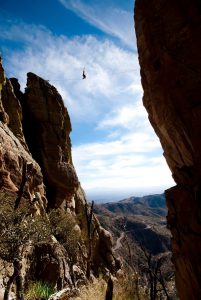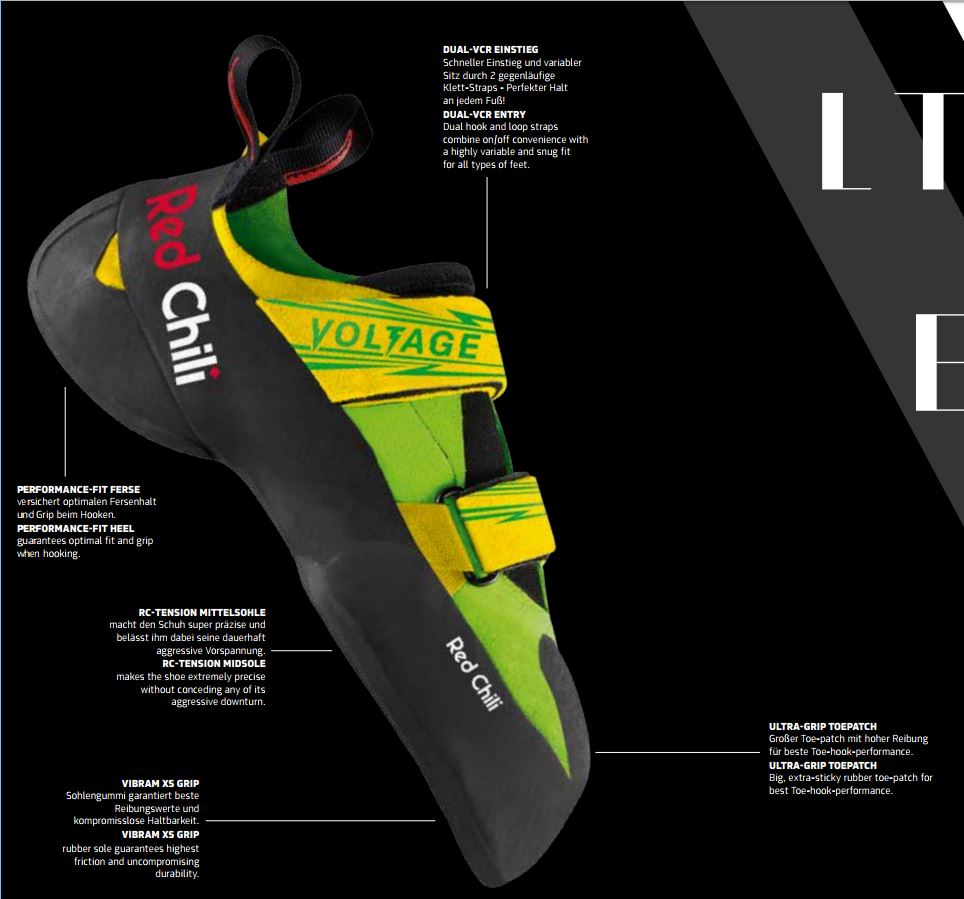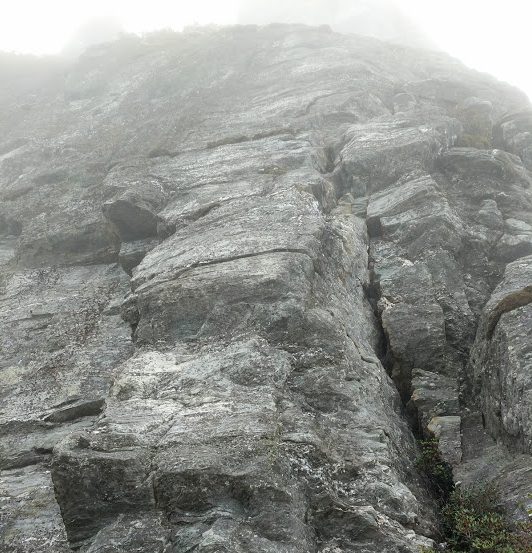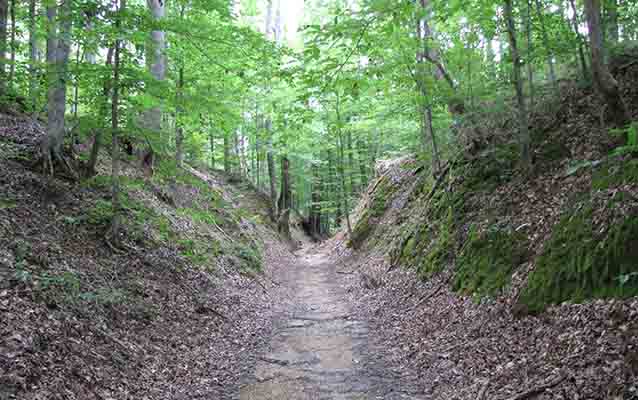You may wonder what is free solo rock climbing? I am sure you may have guessed the correct answer. It is a form of free climbing where the climber climbs up a route without any aide ![By Bill Selak [CC BY 2.0 (https://creativecommons.org/licenses/by/2.0)], via Wikimedia Commons Michael_Reardon_-_free_soloing_in_Joshua_Tree_(crop)](https://rockclimbingforwomen.com/wp-content/uploads/2018/08/Michael_Reardon_-_free_soloing_in_Joshua_Tree_crop-237x300.jpg) such as ropes, harnesses, or any other protective equipment. The climber relies solely on his or her abilities, a pair of climbing shoes, and maybe some chalk. These climbers are known as free soloists. They often climb above safe heights where a fall will result in serious injury or death.
such as ropes, harnesses, or any other protective equipment. The climber relies solely on his or her abilities, a pair of climbing shoes, and maybe some chalk. These climbers are known as free soloists. They often climb above safe heights where a fall will result in serious injury or death.
Is There Any Difference Between Free Solo Climbing, Free Climbing, or Soloing a Free Climb?
You may have also heard of free climbing. At first, I thought free solo rock climbing and free climbing are the same. Indeed, they are similar because free soloing is a subset of free climbing. According to Wikipedia.org, the term free climbing originally meant “free from direct aid”.
![By Cromagnom [CC BY-SA 3.0 (https://creativecommons.org/licenses/by-sa/3.0)], from Wikimedia Commons Free solo](https://rockclimbingforwomen.com/wp-content/uploads/2018/08/Free_solo-179x300.jpg)
Free climbing is a form of rock climbing where the climber may or may not use climbing equipment such as rope and other protective equipment to protect against injury during falls only and does not assist with the climbing progress. Free climbing generally includes solo climbing, traditional climbing, sport climbing, and bouldering.
There is yet another term “soloing a free climb” that is also could be confused with the term “free solo climbing”. Soloing means climbing alone without a partner. However, unlike free solo climbing, soloing can be done safely with self-belaying systems and protective equipment.
Why Free Solo?
Is it for fame, fortune, or being noticed by the media? Generally, the answer would be no. Most of these climbers are also known as Dirt Bag climbers. They usually live in their cars or camper van, work only enough to pay for their climbing habits, and move from one climbing place to another.
The level of difficulty may vary. There are a few climbers who have free solo climbed within the 5.14-grade range. Wow, I can barely climb a 5.12 with top rope let alone free solo climbing. Alexander Huber was the first 5.14a free solo in 2004. Dave MacLeod free solo climbed a 5.14b in 2008.
For some free soloists, it is a challenge with the adrenaline rush pumping through their veins, the feeling of being alive. While for others such as Alex Honnold, it is the simplicity and speed that allows climbers to climb without anything to hold them back or weigh them down. While for some it is the extreme mental focus and challenges in learning about themselves to overcome fears and obstacles.
Is It Dangerous?
I know it is a silly question and you probably already know the answer but I just have to ask to see if you paid attention. Yes, it is very dangerous. Many free soloists died at a young age while free solo climbing. There are inherent risks such as loose rocks or the sudden change of weather could cause a free soloist to fall. Mental condition is also another factor. If there is a hesitation or a thought of the possibility of falling while up high, you can freeze or slip.
Alternative and Addition to Free Solo Climbing
There are a handful of alternatives to free solo climbing. They are bouldering, deep water soloing, free base jumping, and Highline free solo.
Bouldering is a type of climbing that does not require a harness or rope. However, the height is generally no higher than 6 meters or 20 feet. When a climber falls, there is either a crash pad or padded floor on the ground.
Deepwater soloing is the latest popular type of climbing. This is ![By Friend of subject, copyright transferred (Contact us/Photo submission) [CC BY-SA 3.0 (https://creativecommons.org/licenses/by-sa/3.0)], via Wikimedia Commons 450px-Steph_Davis_wingsuit_BASE_brento, https://commons.wikimedia.org/wiki/File:Steph_Davis_wingsuit_BASE_brento.jpg](https://rockclimbingforwomen.com/wp-content/uploads/2018/08/450px-Steph_Davis_wingsuit_BASE_brento-225x300.jpg) where a climber without protective gear is climbing over a rock with a body of water below. If the climber falls, he or she will fall into the water.
where a climber without protective gear is climbing over a rock with a body of water below. If the climber falls, he or she will fall into the water.
Freebase jumping is a combination of free solo climbing to a structure or the mountain and base jump with a parachute or wingsuit to descend.

Highline free solo is walk on a tight rope high up in the air. It is also known as a slackline. The rope is tied and suspended tightly between two anchors. The person who walks across generally sometimes is attached to a lifeline to protect from falling or sometimes not. The risk is definitely much higher when he or she is not attached to a lifeline.
My Final Opinion
Would you do free solo climbing? I don’t think I can. I hesitate and have the fear of falling when I bouldered. Just the thought of free solo without rope gives me the jitters. My legs would shake like crazy. Right now, mentally I am not prepared and my head would get in the way.
I love to rock climb and it is addicting. However, I don’t think I would love it enough to find myself free solo climbing. I would give crack climbing a try first.
How far would you go to rock climb and seek more challenges? Would you want to try free solo climbing? I love to hear your thoughts, questions, or comments. Please leave them below.





